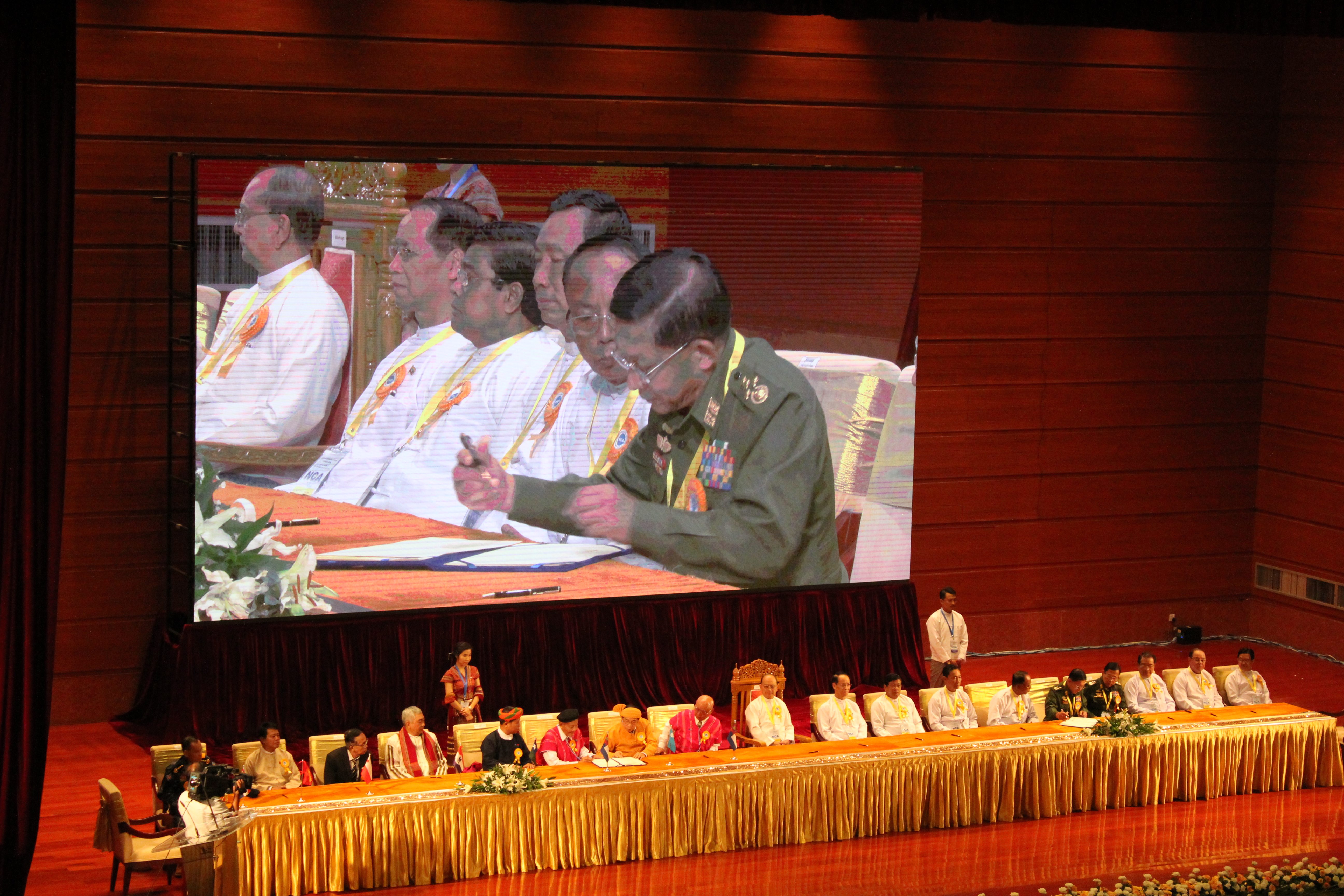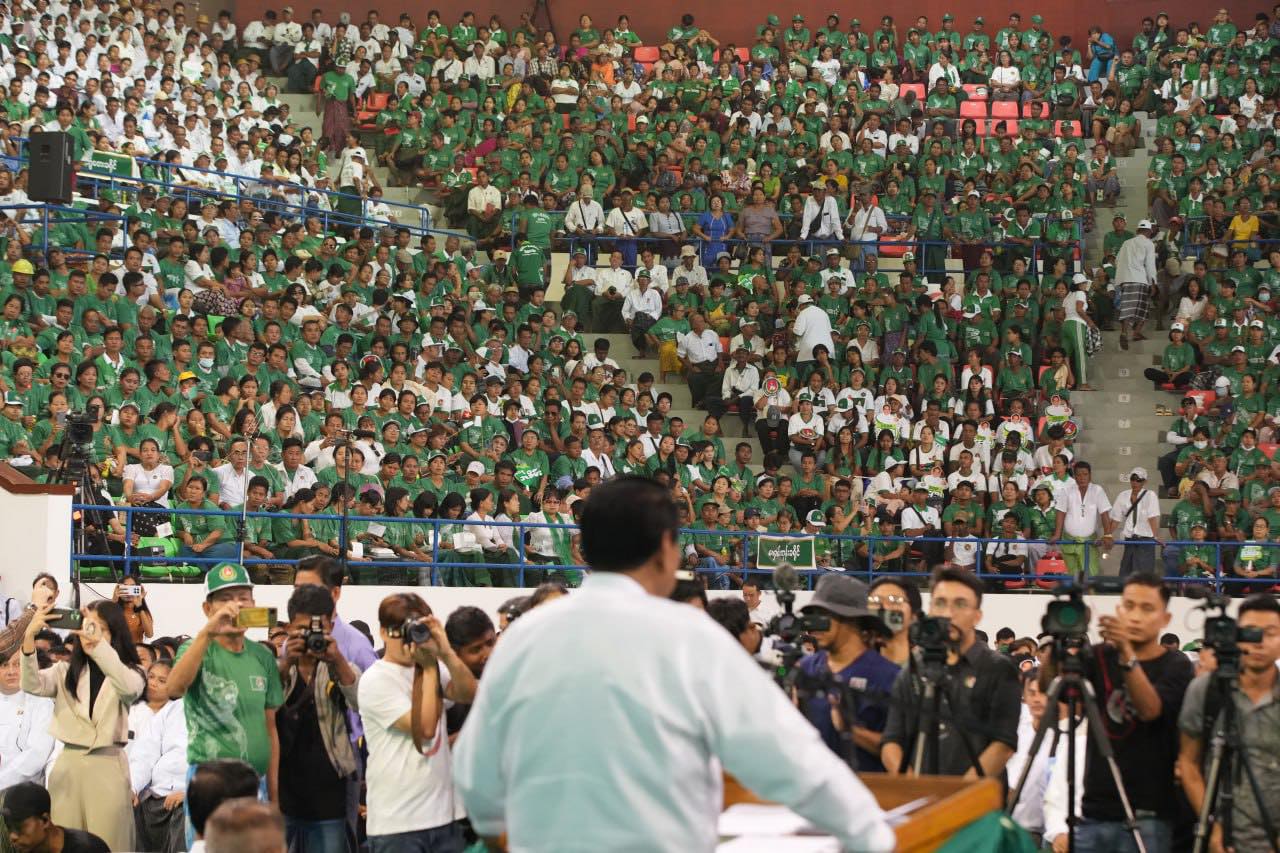CNI News
27 November 2025
In Myanmar, after the multi-party democratic general election is held, the policies of the new government are unlikely to change and will most likely continue along the path currently being led by the Commander-in-Chief of Defence Services, according to a political analyst who spoke to CNI News.
“Just as most people assume, the general expectation is that the post-election government will follow the same path the Commander-in-Chief is taking now. Whether the USDP forms the government or whether C in C Min Aung Hlaing himself becomes president, political, military, and peace-related policies will not undergo any major changes. That is my view.”, he said.
Under former Senior General Than Shwe, an election was held and state power was transferred to the government led by U Thein Sein, during which Daw Aung San Suu Kyi was released and many political reforms took place.

Signing of the NCA during U Thein Sein’s administration
Later, during U Thein Sein’s administration, Aung San Suu Kyi's National League for Democracy (NLD) contested the by-elections under the 2008 Constitution, and peace negotiations with ethnic armed groups were also pursued.
According to political and military analysts, because it is already widely predicted who will likely become president after the election, no major changes are expected once the new civilian government takes office.
One analyst added: “The path set under the 2008 Constitution isn’t necessarily bad. But the degree of change depends on the policies of the president who takes office after the election. Based on present assumptions, major changes are unlikely. We don’t know who will become president yet — it could be someone from the USDP, or U Min Aung Hlaing may continue as president. If there is no major shift, the country’s direction will depend heavily on him. Right now, we can already predict who wants to be president. That’s why we do not expect significant changes under the next president.”

USDP party
After more than four years since the 2021 political crisis, the first phase of the election is scheduled for December 28, 2025.
The second phase will take place on January 11, 2026, and two weeks later, the third phase will be held, according to Maj-Gen Zaw Min Tun, head of the press team of the National Defence and Security Council, who announced this on November 10.
If the post-election government is formed in the style of a national unity government, analysts believe some policy changes may become possible.




